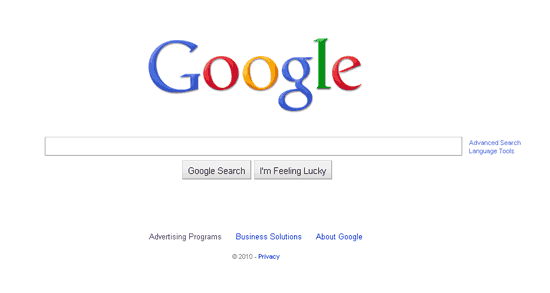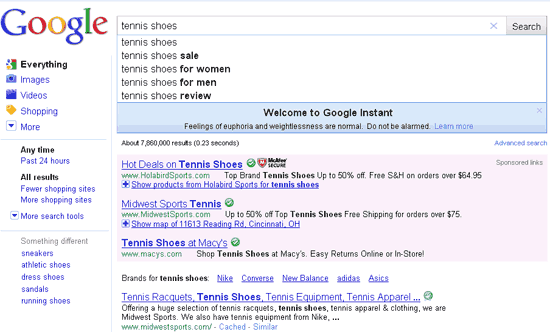Today Google unveiled what they call Google Instant. It provides you with search results as you type (no need to click the ‘search’ button.)
It’s pretty slick and if you haven’t seen it already jump on over to Google and give it a go.
To learn more about what it’s all about you can go to the Google Instant page.
Here’s a quick look at it:
Start at the home page as normal

Start typing and get dynamic results on the fly
